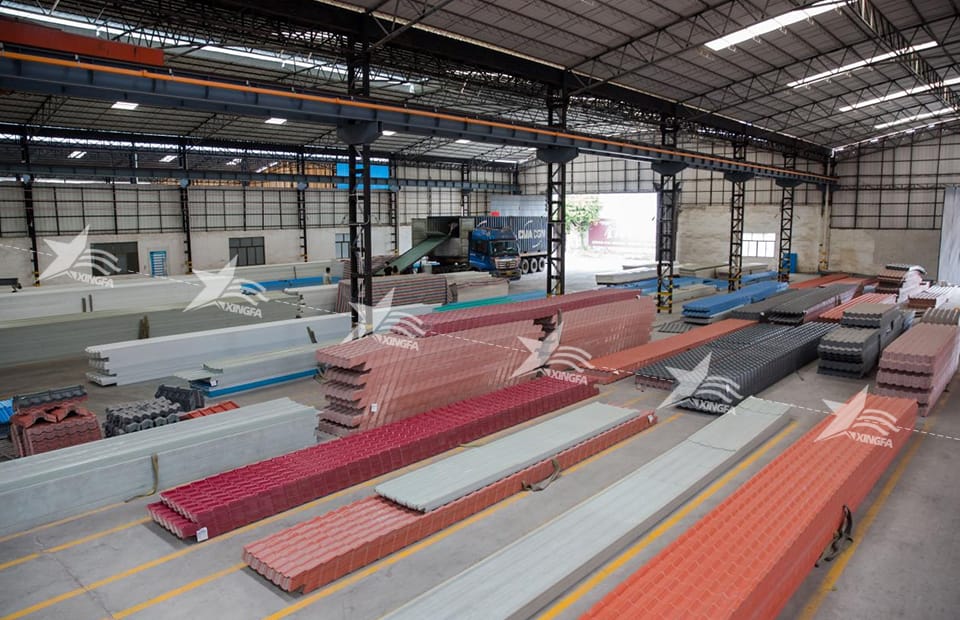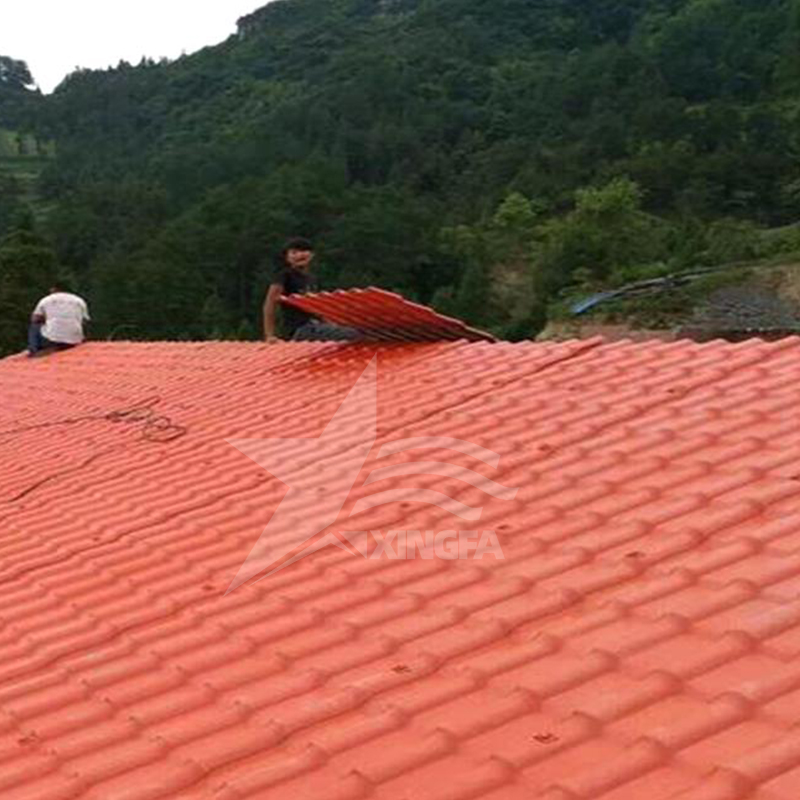Resin tiles have gained popularity as an innovative and environmentally friendly roofing material, widely used in the construction industry for over a decade. Their appeal extends to both consumers and the building materials market, which sees them as a product with a bright future. However, with increasing market demand, some issues have arisen. According to incomplete statistics, over 700 companies across the country are involved in the production and sale of resin tiles. Fierce market competition has led some unscrupulous businesses to use inferior materials, such as recycled and crushed materials, and even low-quality surface coatings that resemble high-quality products but fail to meet the necessary standards.
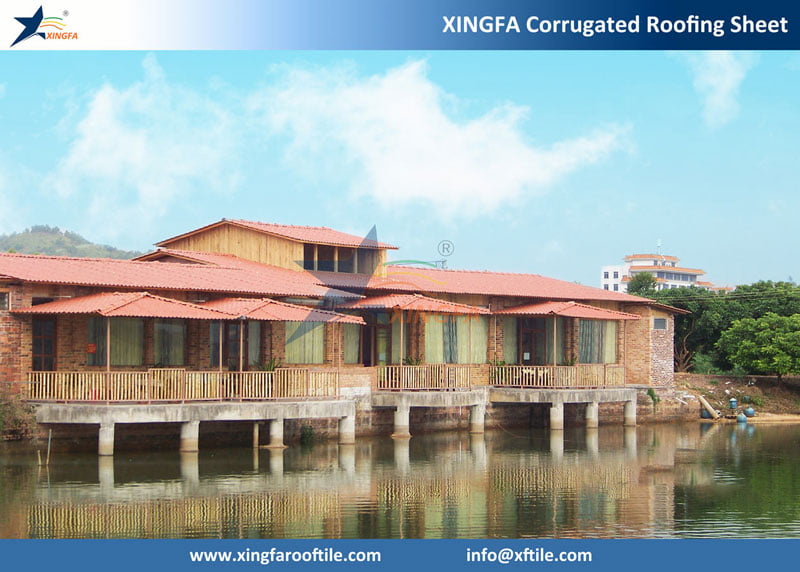
These substandard products have flooded the market, making it increasingly difficult for consumers to distinguish between high-quality and low-quality resin tiles, often leading to the purchase of inferior goods. To help consumers make informed choices, here are six essential methods to identify high-quality resin tiles:
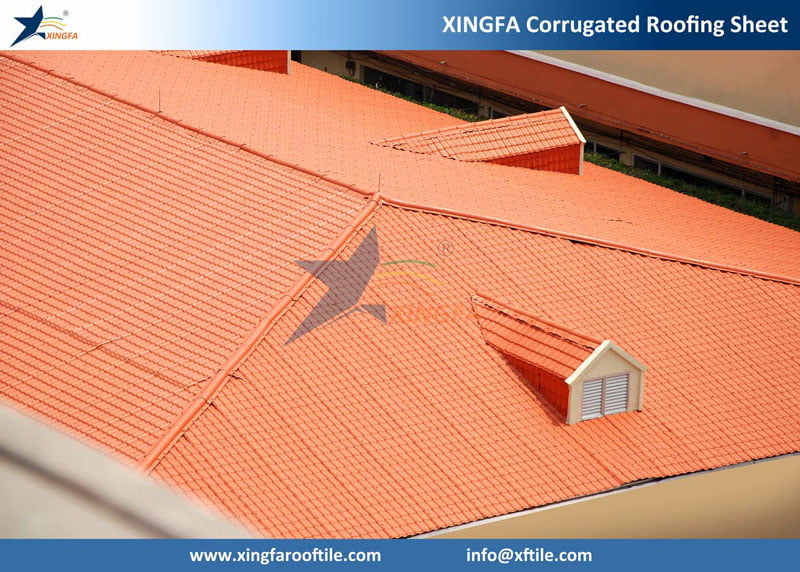
- Visual Quality
High-quality resin tiles: These tiles have a well-defined shape, a smooth surface, and vibrant colors. They exhibit a refined texture that is immediately noticeable.
Low-quality resin tiles: These tiles often appear blurry, rough, and lack the finesse and clarity of high-quality tiles. The surface may be uneven, and the colors may be dull or inconsistent.

- Weight Check
High-quality resin tiles: The primary material for these tiles is polyvinyl chloride (PVC), which has a density of approximately 1.8. By weighing the composite resin tile and using the formula (weight ÷ volume ≈ 1.8), you can verify that the tiles are made of high-quality PVC. This indicates a superior product.
Low-quality resin tiles: These may contain excessive filler materials, making them lighter or heavier than the expected weight, indicating a lower quality.
- Touch and Sound
High-quality resin tiles: These tiles are lightweight and feel comfortable to the touch. When tapped, they produce a dull sound, indicating their solid structure.
Low-quality resin tiles: These tiles may feel heavy and uncomfortable. Tapping them often results in a sharp, brittle sound, suggesting poor quality and structural issues.
- Quality Inspection Reports
High-quality resin tiles: Reputable manufacturers provide comprehensive quality inspection reports. These reports include detailed test results for various performance indicators, ensuring the product’s quality and reliability.
Low-quality resin tiles: These products often lack proper documentation or provide reports with incomplete or questionable data, making it hard to trust their quality.
- Fire Resistance
High-quality resin tiles: When exposed to a flame, these tiles will extinguish themselves once the flame source is removed and will not emit any unpleasant odors.
Low-quality resin tiles: These tiles may catch fire, continue burning even after the flame source is removed, and produce a pungent smell, indicating the presence of harmful materials.
- Manufacturer’s Reputation and Capability
High-quality resin tiles: Choosing products from well-established brands and reputable manufacturers ensures high-quality standards. These companies often have extensive experience and hold international quality certifications, offering reliable products and excellent after-sales service.

Low-quality resin tiles: Lesser-known brands or new manufacturers might lack the experience and resources to produce high-quality tiles, and their products might not meet industry standards.
Detailed Examination of Each Method
- Visual Quality Analysis
A detailed inspection of the tile’s appearance can reveal much about its quality. High-quality tiles have a consistent and smooth surface, with no visible defects or irregularities. The color should be uniform across the tile, with no signs of discoloration or patchiness. Inspecting the tile under different lighting conditions can help identify any inconsistencies that might not be immediately obvious.
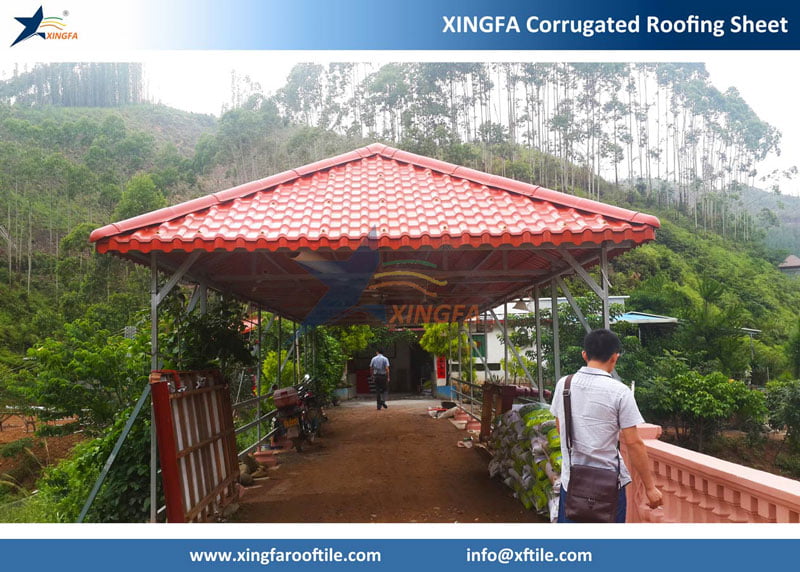
- Weight and Density Check
Conducting a weight check involves a simple but effective process. By calculating the weight-to-volume ratio, consumers can determine if the tiles are made from high-quality PVC. This method helps identify whether the tiles contain excessive fillers or recycled materials that compromise their integrity and performance.

- Touch and Sound Evaluation
The tactile feel of the tiles provides immediate feedback on their quality. High-quality resin tiles should feel lightweight yet sturdy. The sound test, where a tile is tapped lightly, offers additional clues. A dull, solid sound typically indicates a well-made tile, whereas a sharp or brittle sound suggests inferior quality and potential structural weaknesses.
- Inspection Report Verification
Requesting and reviewing the manufacturer’s quality inspection report is crucial. These reports should include tests for durability, weather resistance, impact resistance, and other relevant performance metrics. A thorough inspection report is a hallmark of a reliable manufacturer committed to transparency and quality assurance.
- Fire Resistance Testing
Testing the fire resistance of resin tiles can be done safely in a controlled environment. High-quality tiles should self-extinguish when the flame source is removed. The absence of any unpleasant odor during this test is a good sign, indicating that the tiles do not contain harmful chemicals.
- Manufacturer Evaluation
Researching the manufacturer’s reputation is essential. Established brands and companies with a long history in the market are more likely to produce high-quality products. Checking for industry certifications and customer reviews can provide additional insights into the manufacturer’s reliability and the quality of their tiles.

Conclusion
By focusing on these six methods, consumers can effectively differentiate between high-quality and low-quality resin tiles. Visual inspections, weight and density checks, tactile and sound evaluations, inspection report verifications, fire resistance tests, and thorough manufacturer evaluations are all crucial steps in ensuring that you select the best resin tiles for your needs.
Understanding these key methods not only helps in making informed purchasing decisions but also ensures long-lasting and reliable roofing solutions. High-quality resin tiles offer numerous benefits, including superior weather resistance, durability, and aesthetic appeal, making them a valuable investment for any building project.

Additional Tips for Selecting Resin Tiles
- Consider Environmental Factors
When choosing resin tiles, consider the specific environmental conditions they will be exposed to. For example, regions with extreme weather conditions, such as high humidity, heavy rainfall, or intense sunlight, require tiles with enhanced weather resistance. High-quality resin tiles should be able to withstand these conditions without degrading or losing their structural integrity.
- Evaluate Cost vs. Quality
While it may be tempting to opt for cheaper options, it is important to weigh the cost against the quality and longevity of the product. Investing in high-quality resin tiles can save money in the long run by reducing maintenance costs and extending the roof’s lifespan. Be wary of products that seem too good to be true, as they may compromise on quality.
- Seek Professional Advice
Consulting with roofing professionals or contractors can provide valuable insights into selecting the best resin tiles. These experts can offer recommendations based on their experience and knowledge of the latest products and industry standards. They can also assist with the installation process to ensure that the tiles are correctly installed for optimal performance.
- Check Warranty and Support
Reputable manufacturers often provide warranties and after-sales support for their products. A comprehensive warranty can offer peace of mind, covering potential defects or issues that may arise. Additionally, good customer support can assist with any questions or concerns, ensuring a smooth and satisfactory experience.
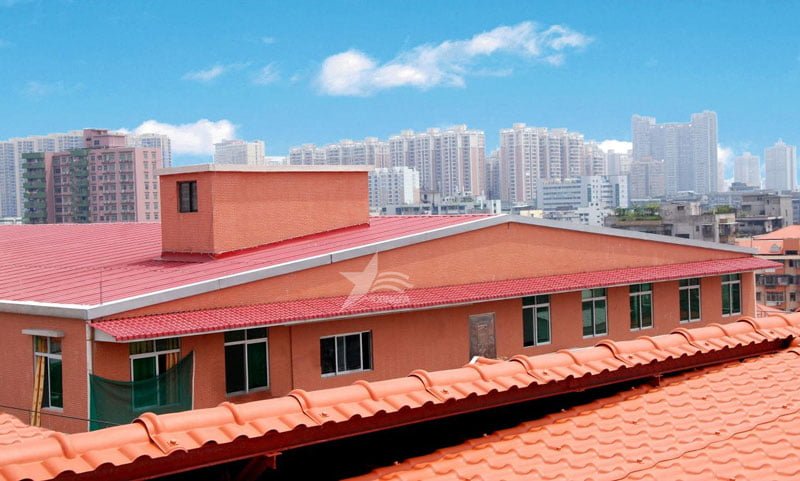
Final Thoughts
High-quality resin tiles are a versatile and durable roofing solution that can enhance the appearance and functionality of any building. By following the outlined methods to identify top-quality products, consumers can avoid the pitfalls of inferior tiles and enjoy the benefits of a reliable and aesthetically pleasing roof. Taking the time to thoroughly evaluate the options and seek expert advice will ultimately lead to a more informed decision and a better investment in the long-term performance of your roof.


